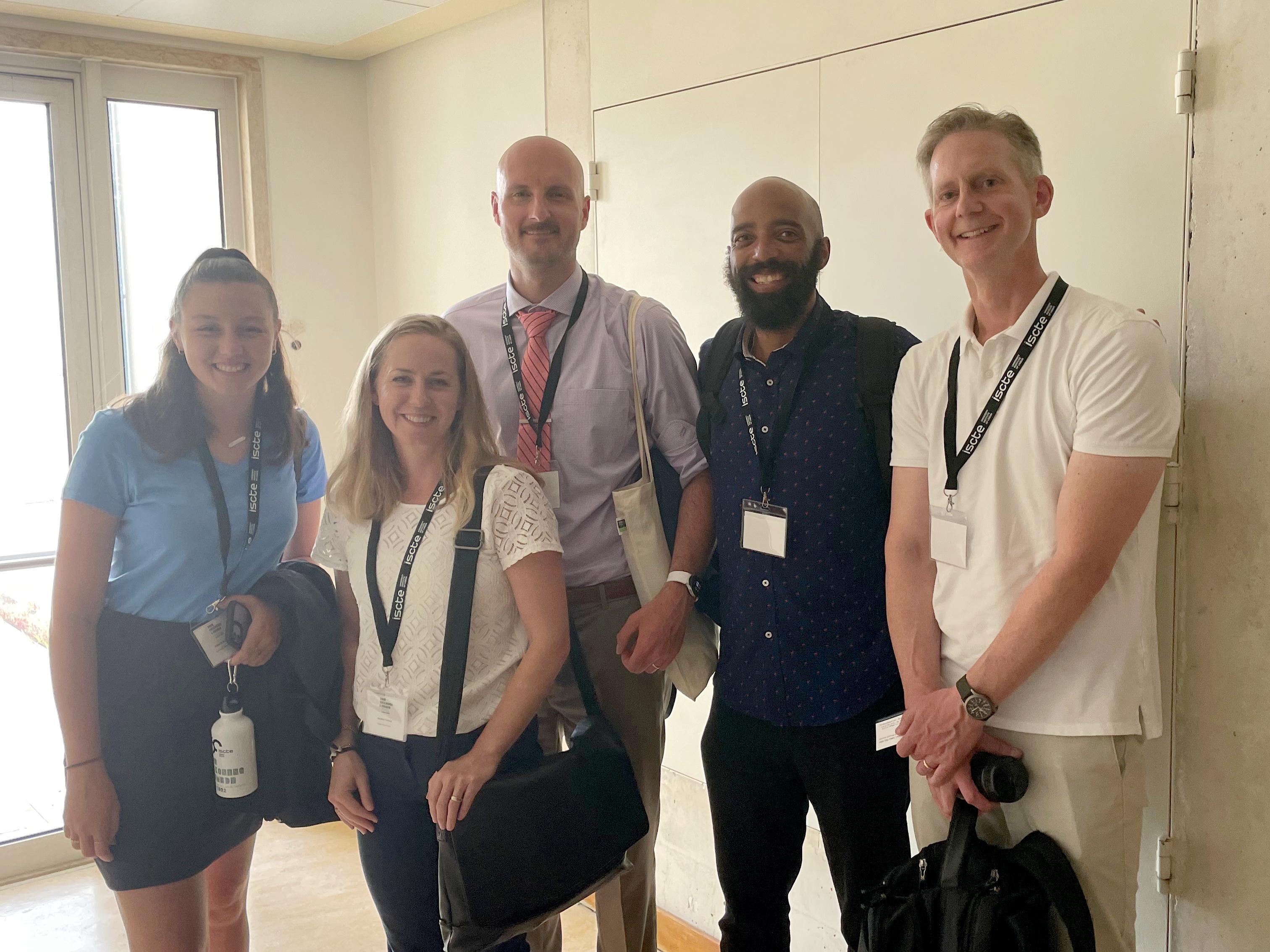Over the summer, SUNY Oswego criminal justice major Gabrielle Roubanian had an outstanding opportunity to present research to an international conference at Lisbon, Portugal.
Working on research conducted with criminal justice faculty member and mentor Marthinus Koen, Roubanian presented "Management Cops and Street Cops: Making Sense of Changing Times" as part of a panel with Koen at the Law & Society Association (LSA) Conference in July.
When Koen first offered the opportunity, Roubanian said her response was: “Are you kidding me?”
It represented “the opportunity of a lifetime,” Roubanian said, and while it might have seemed daunting at first, Koen’s support made it achievable.
“He supported me and told me he thought I could do it,” Roubanian recalled. “I thought it was going to be more intimidating than it was. I was confident by what I had done to that point. I was nothing but ecstatic about it and it made me want to keep doing more.”
For the research, Koen had provided some of his previously collected data for Roubanian to analyze, coming from 70 semi-structured interviews collected at a police agency in the Midwest.
With the help of Koen, Roubanian coded these interviews to see how different police subcultures made sense of changing times. Using a structure on two police cultures from previous studies, she compared "management cops" to "street cops" and found that important differences and similarities existed in how these officers viewed police misconduct, the media, calls for police reforms and public sentiment.
“Street cops, from the sergeants on down, deal with people on a daily basis,” Koen explained. “Sometimes they wonder if management has lost touch. I had collected a boatload of interview data in a different city. Gabby separated out responses from the street cops from the management cops. They view changing times differently.”
Koen knew Roubanian as “a great student” from classes, originally shared it to give Roubanian practice coding responses for a different upcoming project, but she found trends in it that appeared noteworthy.
“Over the course of many months, I did the coding process and started seeing some themes coming out of the data,” Roubanian explained. “I found four major themes, and I was super excited.”
International opportunity
Koen was invited to be on a panel in Lisbon, and when some slots opened up, he offered the opportunity to Roubanian, realizing speakers at this conference were usually people with Ph.Ds. This panel also featured criminal justice and legal scholars from such entities as George Mason University, New York University and the Center for Advancing Correctional Excellence.
“The people in the audience applauded her for being an undergraduate and for doing so well,” Koen said.
Roubanian’s trip to the LSA conference was funded by the college’s David F. Cutler ‘74 Public Justice Excellence Fund.
The project will continue as Roubanian focuses this semester on turning this presentation into a co-authored peer-reviewed research article, where she will serve as first author.
Roubanian said she “fell in love with the school when I came here,” and opportunities like this make the experience better and better.
“I always wanted to do something within the law,” Roubanian said, who also double majors in sociology. “I always was into criminal justice or criminology in general. From the first class, I knew that criminal justice was right for me. I was interested in learning about crime, how we respond to people committing crime, what puts a person into a position to commit crimes and how we present crime.”
The paper and presentation will help Roubanian as she looks at graduate schools, but for her the journey itself has been a joy.
“I really put all my effort into my classes because I genuinely enjoy being there,” Roubanian said. “I love the challenge of not knowing something. I’m just constantly building on everything I like about criminal justice.”




